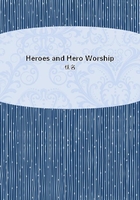SOCRATES: And how does the legislator make names? and to what does he look? Consider this in the light of the previous instances: to what does the carpenter look in making the shuttle? Does he not look to that which is naturally fitted to act as a shuttle?
HERMOGENES: Certainly.
SOCRATES: And suppose the shuttle to be broken in making, will he make another, looking to the broken one? or will he look to the form according to which he made the other?
HERMOGENES: To the latter, I should imagine.
SOCRATES: Might not that be justly called the true or ideal shuttle?
HERMOGENES: I think so.
SOCRATES: And whatever shuttles are wanted, for the manufacture of garments, thin or thick, of flaxen, woollen, or other material, ought all of them to have the true form of the shuttle; and whatever is the shuttle best adapted to each kind of work, that ought to be the form which the maker produces in each case.
HERMOGENES: Yes.
SOCRATES: And the same holds of other instruments: when a man has discovered the instrument which is naturally adapted to each work, he must express this natural form, and not others which he fancies, in the material, whatever it may be, which he employs; for example, he ought to know how to put into iron the forms of awls adapted by nature to their several uses?
HERMOGENES: Certainly.
SOCRATES: And how to put into wood forms of shuttles adapted by nature to their uses?
HERMOGENES: True.
SOCRATES: For the several forms of shuttles naturally answer to the several kinds of webs; and this is true of instruments in general.
HERMOGENES: Yes.
SOCRATES: Then, as to names: ought not our legislator also to know how to put the true natural name of each thing into sounds and syllables, and to make and give all names with a view to the ideal name, if he is to be a namer in any true sense? And we must remember that different legislators will not use the same syllables. For neither does every smith, although he may be making the same instrument for the same purpose, make them all of the same iron. The form must be the same, but the material may vary, and still the instrument may be equally good of whatever iron made, whether in Hellas or in a foreign country;--there is no difference.
HERMOGENES: Very true.
SOCRATES: And the legislator, whether he be Hellene or barbarian, is not therefore to be deemed by you a worse legislator, provided he gives the true and proper form of the name in whatever syllables; this or that country makes no matter.
HERMOGENES: Quite true.
SOCRATES: But who then is to determine whether the proper form is given to the shuttle, whatever sort of wood may be used? the carpenter who makes, or the weaver who is to use them?
HERMOGENES: I should say, he who is to use them, Socrates.
SOCRATES: And who uses the work of the lyre-maker? Will not he be the man who knows how to direct what is being done, and who will know also whether the work is being well done or not?
HERMOGENES: Certainly.
SOCRATES: And who is he?
HERMOGENES: The player of the lyre.
SOCRATES: And who will direct the shipwright?
HERMOGENES: The pilot.
SOCRATES: And who will be best able to direct the legislator in his work, and will know whether the work is well done, in this or any other country?
Will not the user be the man?
HERMOGENES: Yes.
SOCRATES: And this is he who knows how to ask questions?
HERMOGENES: Yes.
SOCRATES: And how to answer them?
HERMOGENES: Yes.
SOCRATES: And him who knows how to ask and answer you would call a dialectician?
HERMOGENES: Yes; that would be his name.
SOCRATES: Then the work of the carpenter is to make a rudder, and the pilot has to direct him, if the rudder is to be well made.
HERMOGENES: True.
SOCRATES: And the work of the legislator is to give names, and the dialectician must be his director if the names are to be rightly given?
HERMOGENES: That is true.
SOCRATES: Then, Hermogenes, I should say that this giving of names can be no such light matter as you fancy, or the work of light or chance persons; and Cratylus is right in saying that things have names by nature, and that not every man is an artificer of names, but he only who looks to the name which each thing by nature has, and is able to express the true forms of things in letters and syllables.
HERMOGENES: I cannot answer you, Socrates; but I find a difficulty in changing my opinion all in a moment, and I think that I should be more readily persuaded, if you would show me what this is which you term the natural fitness of names.
SOCRATES: My good Hermogenes, I have none to show. Was I not telling you just now (but you have forgotten), that I knew nothing, and proposing to share the enquiry with you? But now that you and I have talked over the matter, a step has been gained; for we have discovered that names have by nature a truth, and that not every man knows how to give a thing a name.
HERMOGENES: Very good.
SOCRATES: And what is the nature of this truth or correctness of names?
That, if you care to know, is the next question.
HERMOGENES: Certainly, I care to know.
SOCRATES: Then reflect.
HERMOGENES: How shall I reflect?
SOCRATES: The true way is to have the assistance of those who know, and you must pay them well both in money and in thanks; these are the Sophists, of whom your brother, Callias, has--rather dearly--bought the reputation of wisdom. But you have not yet come into your inheritance, and therefore you had better go to him, and beg and entreat him to tell you what he has learnt from Protagoras about the fitness of names.
HERMOGENES: But how inconsistent should I be, if, whilst repudiating Protagoras and his truth ('Truth' was the title of the book of Protagoras; compare Theaet.), I were to attach any value to what he and his book affirm!
SOCRATES: Then if you despise him, you must learn of Homer and the poets.
HERMOGENES: And where does Homer say anything about names, and what does he say?















